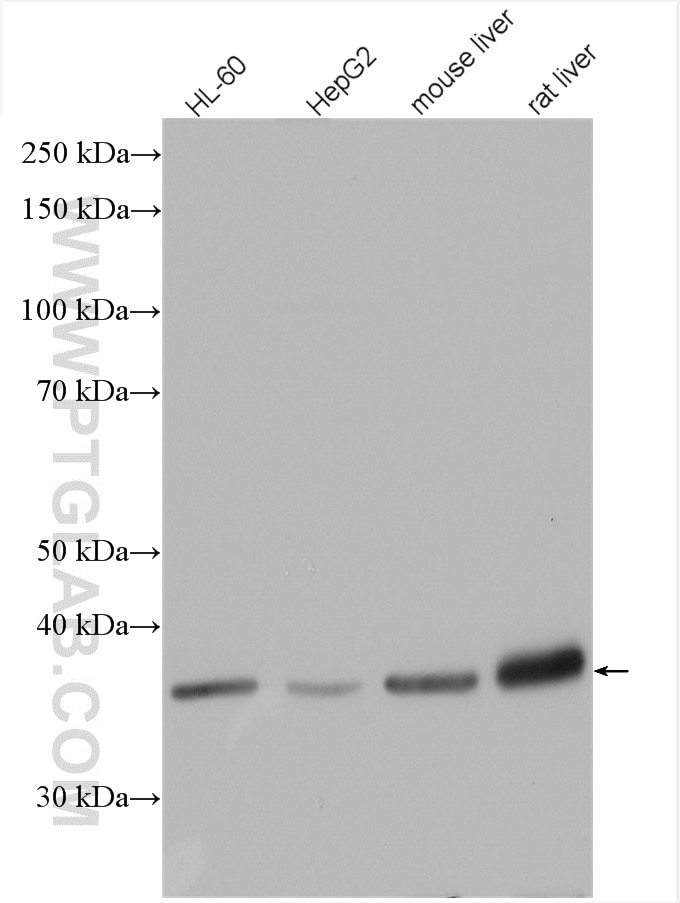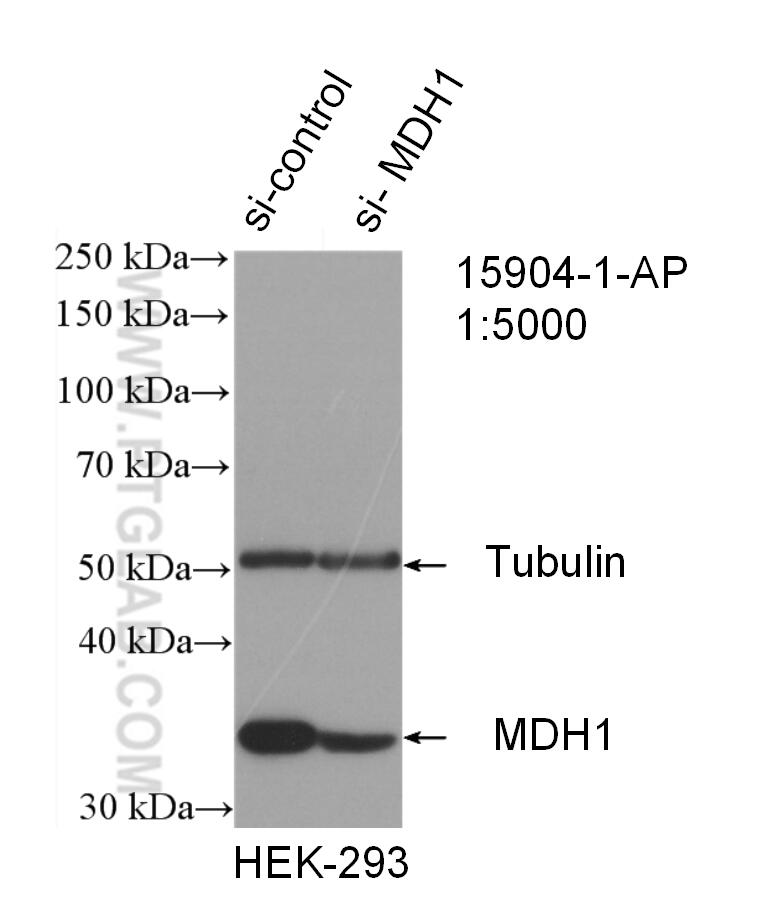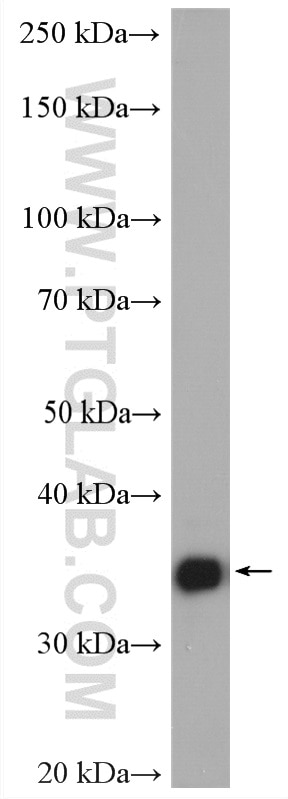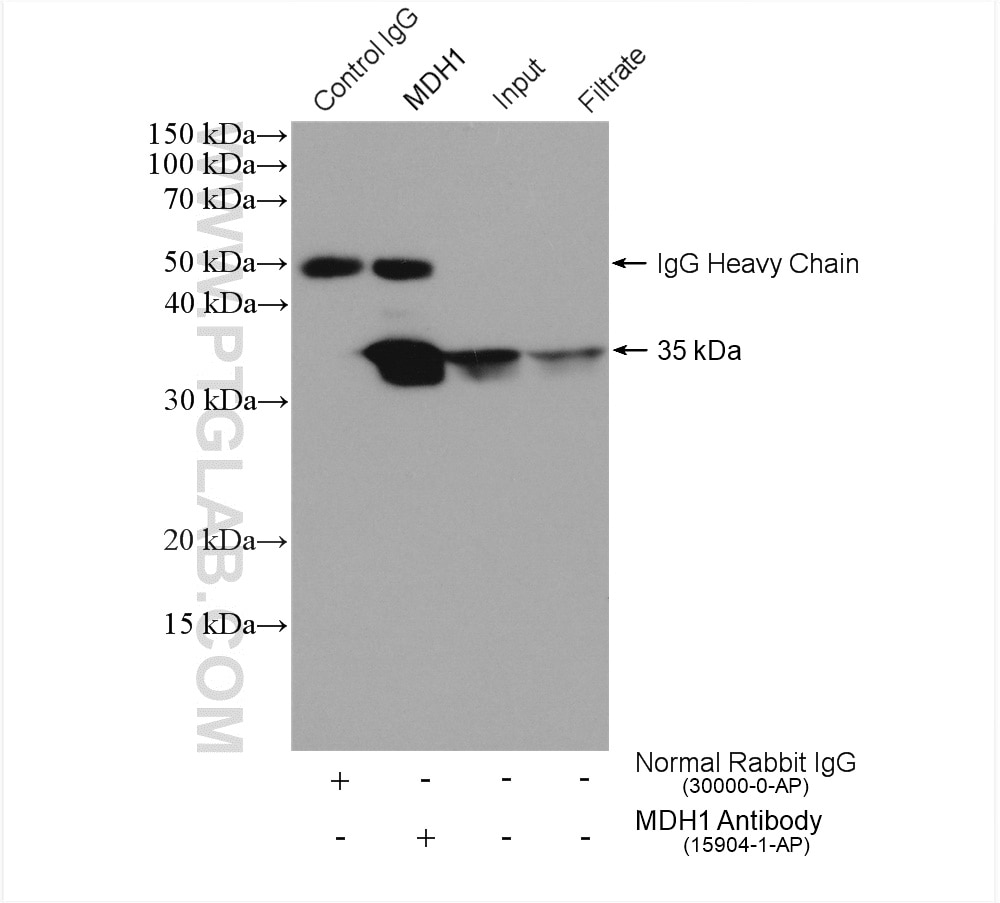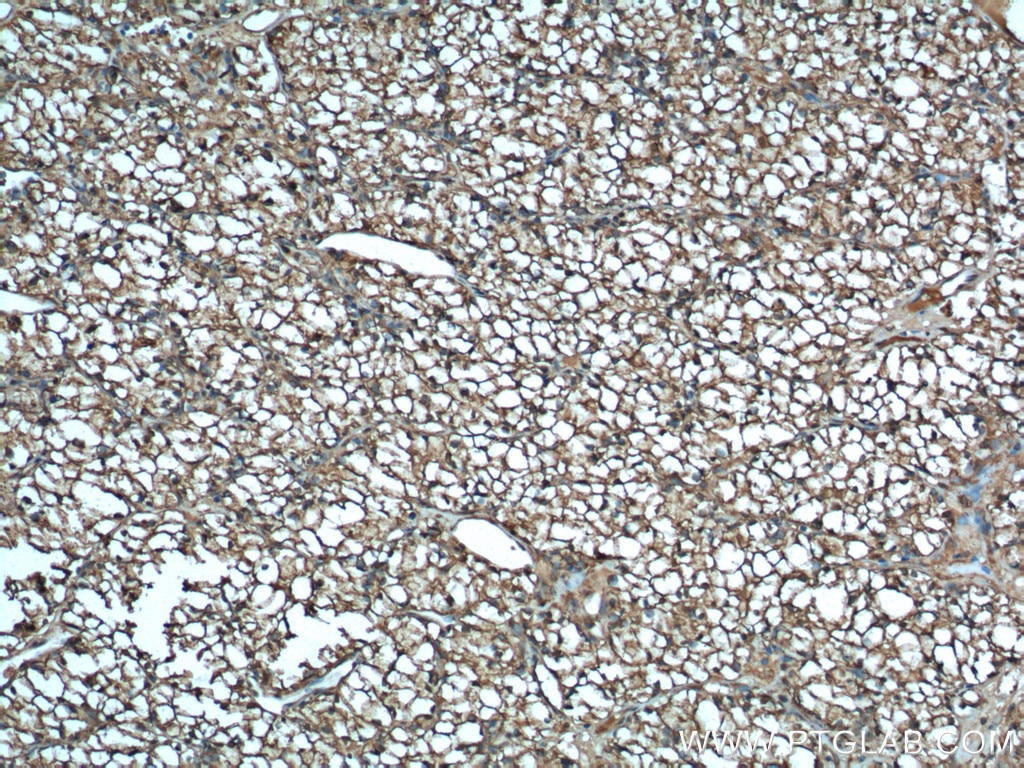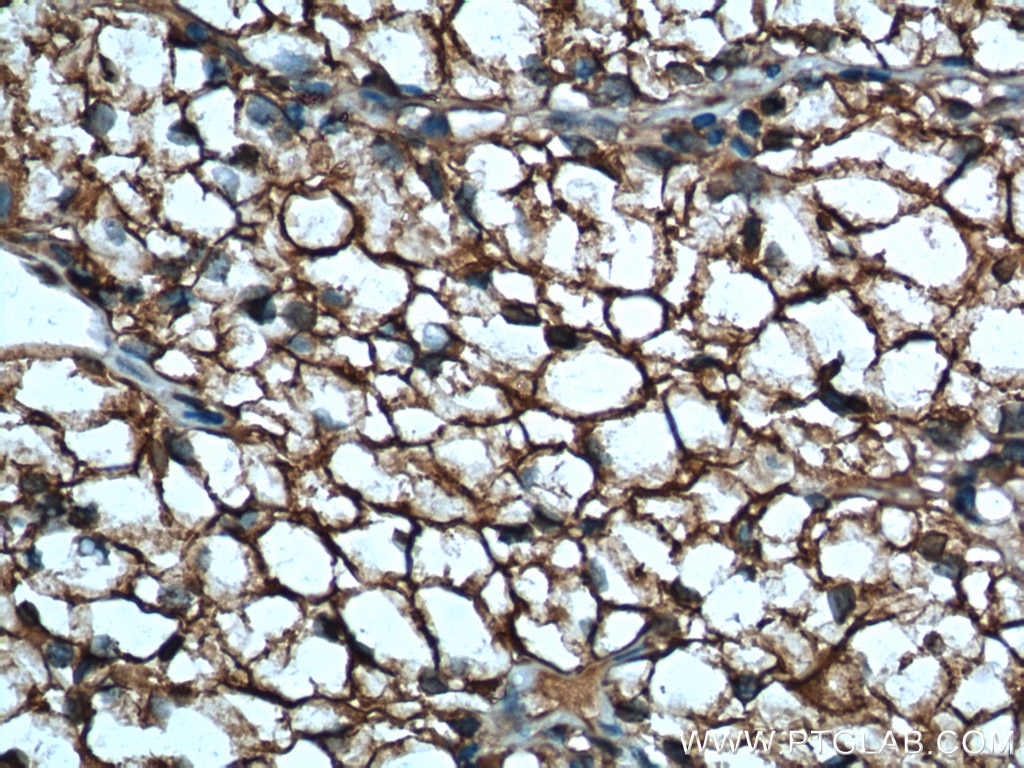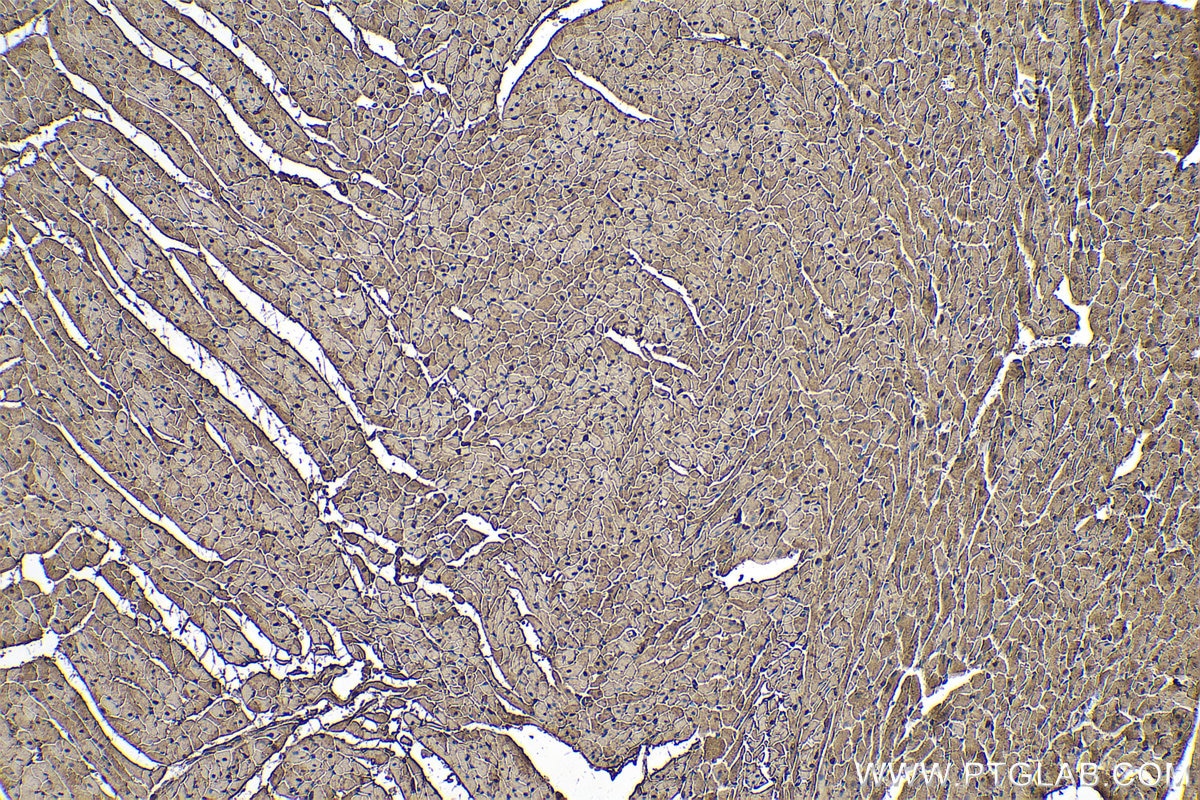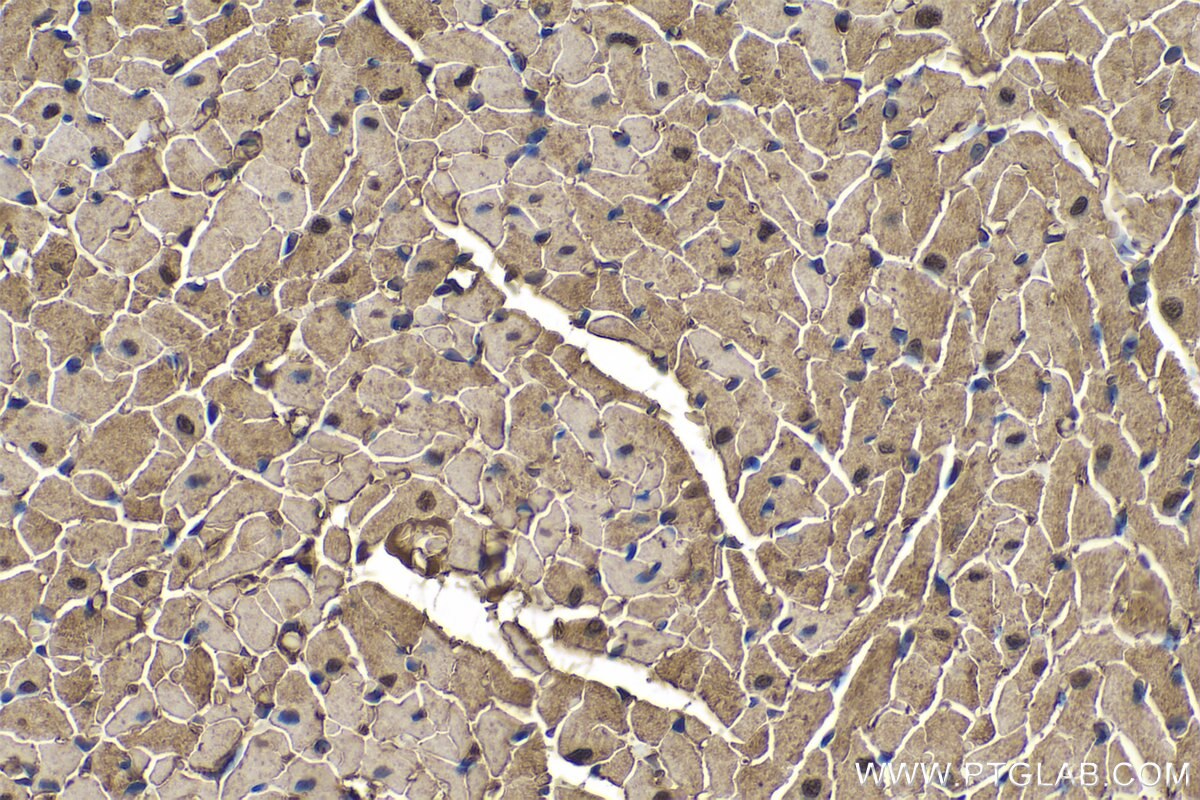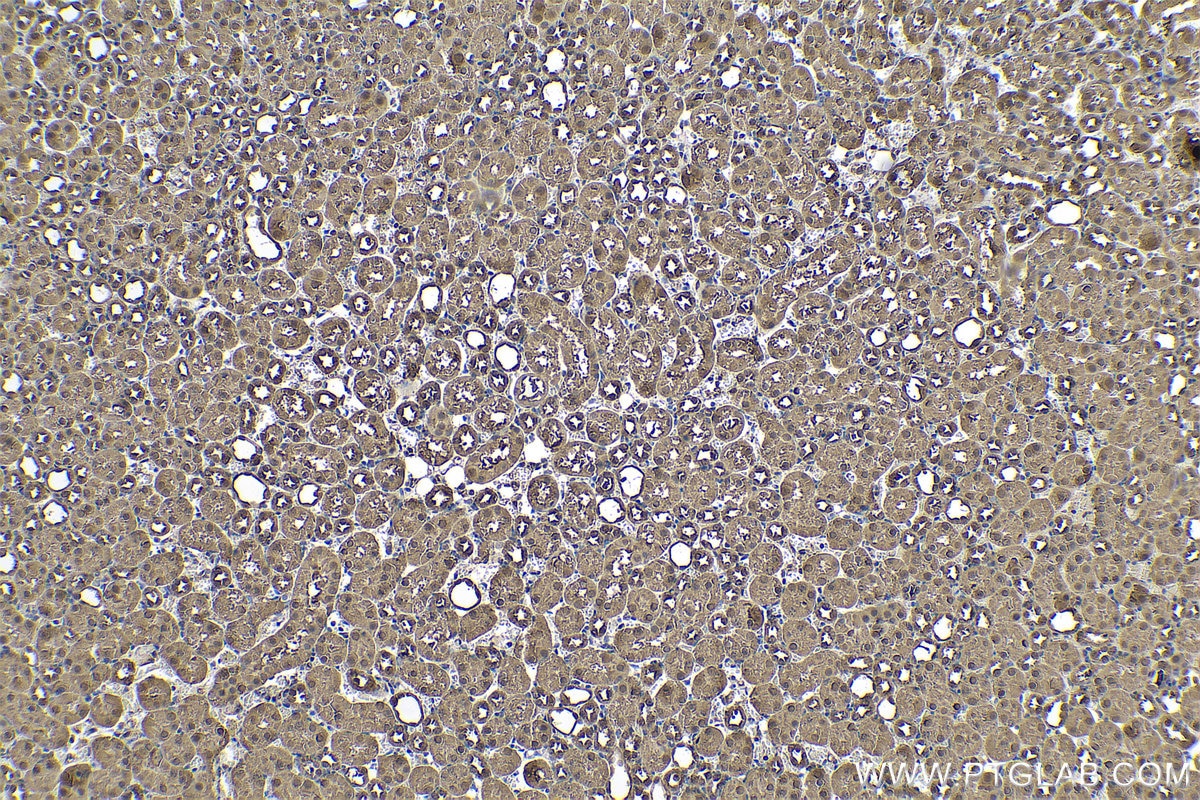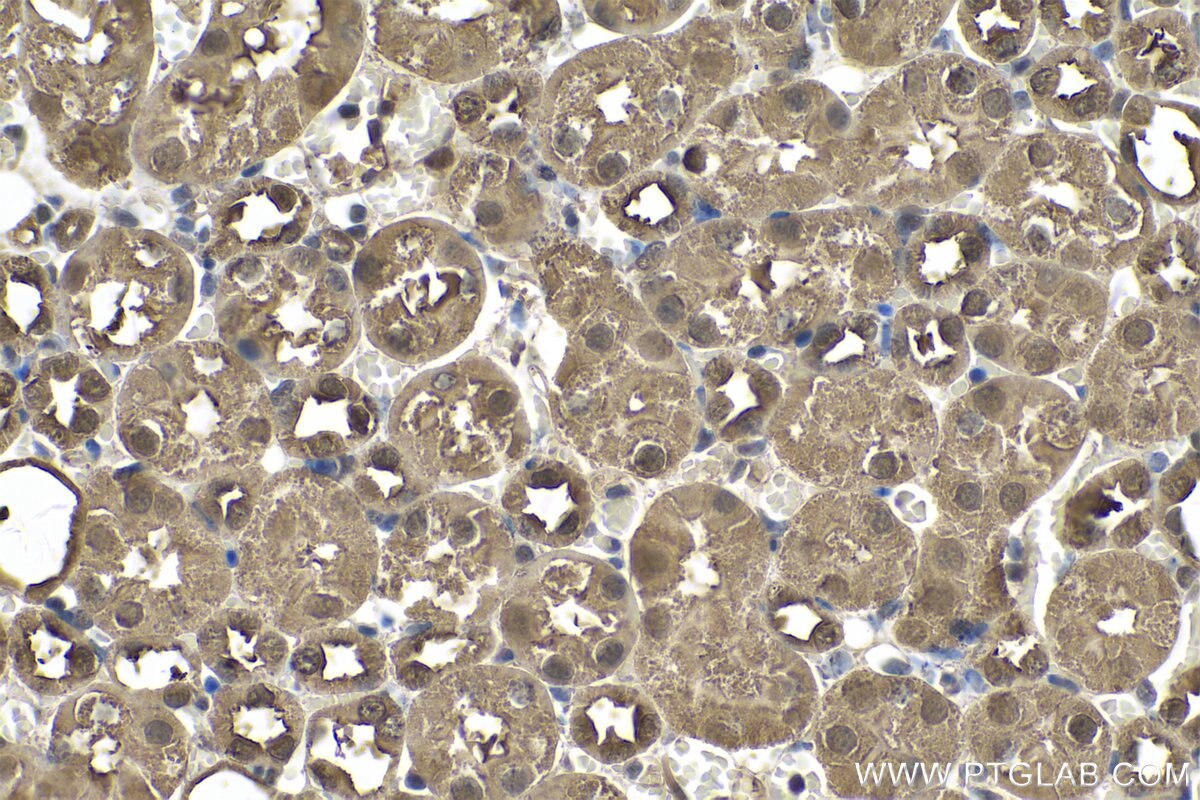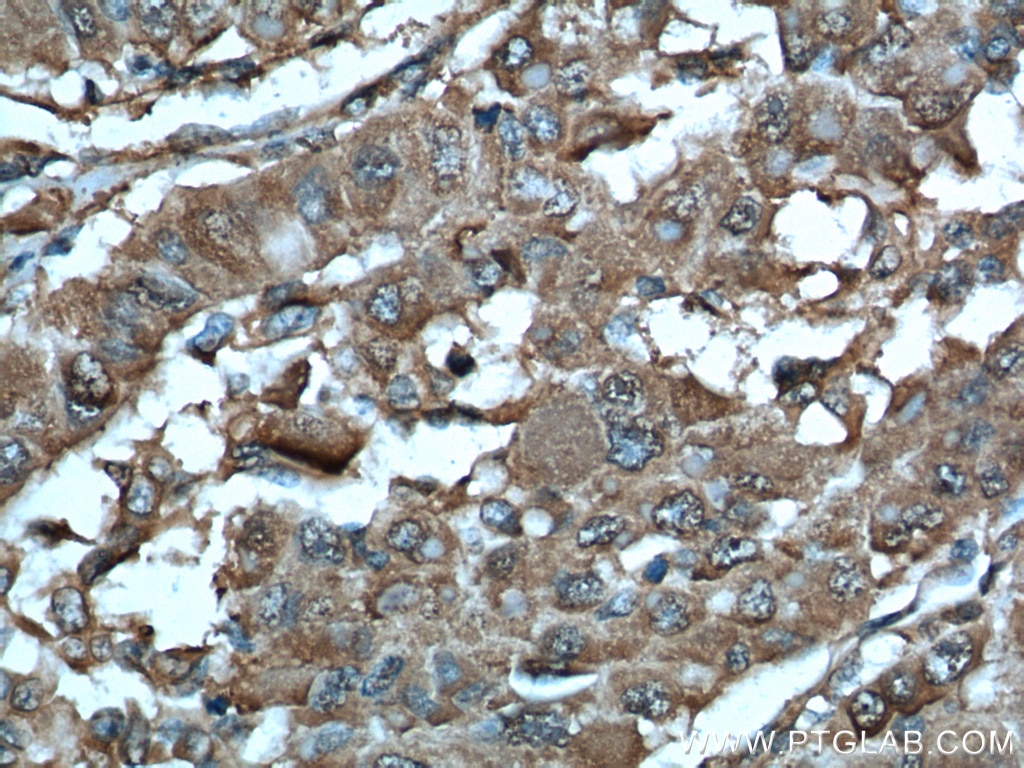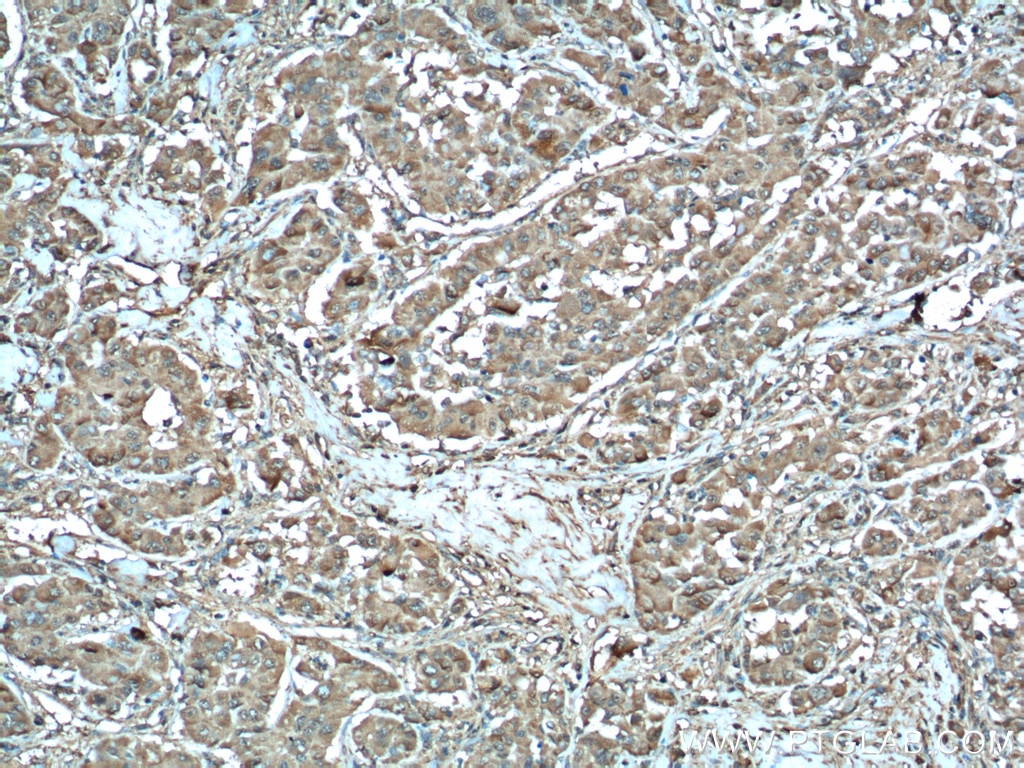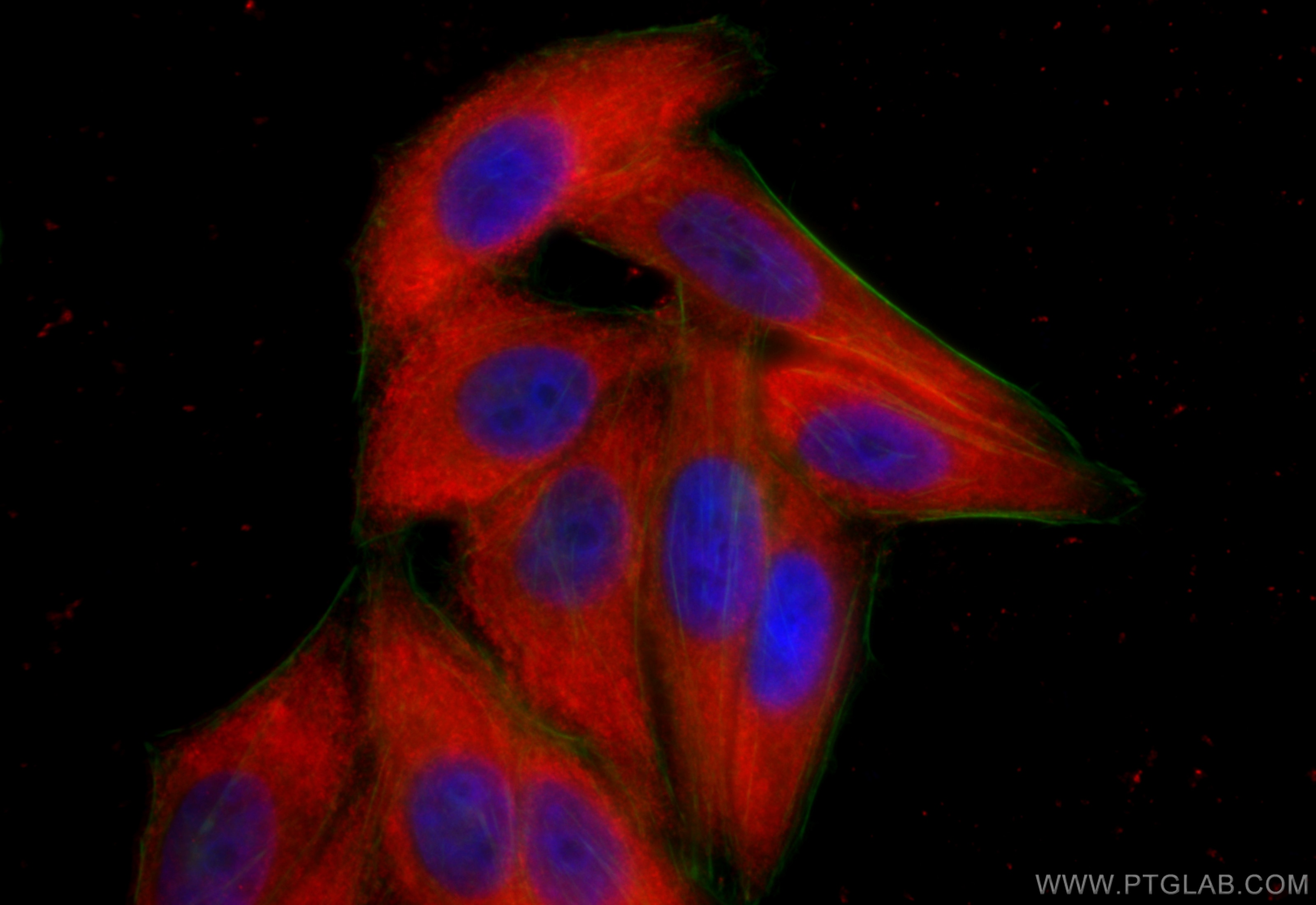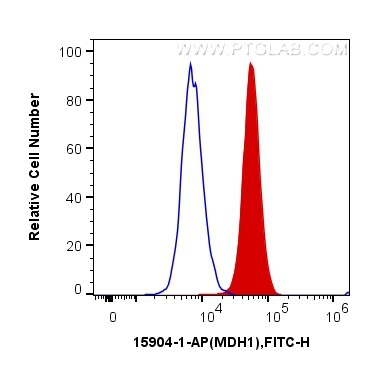- Featured Product
- KD/KO Validated
MDH1 Polyklonaler Antikörper
MDH1 Polyklonal Antikörper für WB, IHC, IF/ICC, FC (Intra), IP, ELISA
Wirt / Isotyp
Kaninchen / IgG
Getestete Reaktivität
human, Maus, Ratte
Anwendung
WB, IHC, IF/ICC, FC (Intra), IP, ELISA
Konjugation
Unkonjugiert
Kat-Nr. : 15904-1-AP
Synonyme
Geprüfte Anwendungen
| Erfolgreiche Detektion in WB | HepG2-Zellen, HEK-293-Zellen, HL-60-Zellen, Mauslebergewebe, Rattenlebergewebe |
| Erfolgreiche IP | HepG2-Zellen |
| Erfolgreiche Detektion in IHC | humanes Nierenzellkarzinomgewebe, humanes Leberkarzinomgewebe, Mausnierengewebe, Rattenherzgewebe Hinweis: Antigendemaskierung mit TE-Puffer pH 9,0 empfohlen. (*) Wahlweise kann die Antigendemaskierung auch mit Citratpuffer pH 6,0 erfolgen. |
| Erfolgreiche Detektion in IF/ICC | HepG2-Zellen |
| Erfolgreiche Detektion in FC (Intra) | HepG2-Zellen |
Empfohlene Verdünnung
| Anwendung | Verdünnung |
|---|---|
| Western Blot (WB) | WB : 1:5000-1:50000 |
| Immunpräzipitation (IP) | IP : 0.5-4.0 ug for 1.0-3.0 mg of total protein lysate |
| Immunhistochemie (IHC) | IHC : 1:50-1:500 |
| Immunfluoreszenz (IF)/ICC | IF/ICC : 1:300-1:1200 |
| Durchflusszytometrie (FC) (INTRA) | FC (INTRA) : 0.40 ug per 10^6 cells in a 100 µl suspension |
| It is recommended that this reagent should be titrated in each testing system to obtain optimal results. | |
| Sample-dependent, check data in validation data gallery | |
Veröffentlichte Anwendungen
| KD/KO | See 1 publications below |
| WB | See 26 publications below |
| IHC | See 2 publications below |
| IF | See 2 publications below |
| IP | See 4 publications below |
Produktinformation
15904-1-AP bindet in WB, IHC, IF/ICC, FC (Intra), IP, ELISA MDH1 und zeigt Reaktivität mit human, Maus, Ratten
| Getestete Reaktivität | human, Maus, Ratte |
| In Publikationen genannte Reaktivität | human, Maus, Ratte |
| Wirt / Isotyp | Kaninchen / IgG |
| Klonalität | Polyklonal |
| Typ | Antikörper |
| Immunogen | MDH1 fusion protein Ag8744 |
| Vollständiger Name | malate dehydrogenase 1, NAD (soluble) |
| Berechnetes Molekulargewicht | 334 aa, 36 kDa |
| Beobachtetes Molekulargewicht | 36 kDa |
| GenBank-Zugangsnummer | BC001484 |
| Gene symbol | MDH1 |
| Gene ID (NCBI) | 4190 |
| Konjugation | Unkonjugiert |
| Form | Liquid |
| Reinigungsmethode | Antigen-Affinitätsreinigung |
| Lagerungspuffer | PBS with 0.02% sodium azide and 50% glycerol |
| Lagerungsbedingungen | Bei -20°C lagern. Nach dem Versand ein Jahr lang stabil Aliquotieren ist bei -20oC Lagerung nicht notwendig. 20ul Größen enthalten 0,1% BSA. |
Hintergrundinformationen
MDH1 (Malate dehydrogenase, cytoplasmic) is also named as MDHA and belongs to the LDH/MDH superfamily and MDH type 2 family which catalyzes the reversible oxidation of malate to oxaloacetate, utilizing the NAD/NADH cofactor system in the citric acid cycle. It can exsit as a dimer and the dimeric MDH1 is the mitochondrial isoenzyme, whereas the tetrameric MDH2 is the glycosomal isoenzyme.(PMID:10693743)
Protokolle
| PRODUKTSPEZIFISCHE PROTOKOLLE | |
|---|---|
| WB protocol for MDH1 antibody 15904-1-AP | Protokoll herunterladen |
| IHC protocol for MDH1 antibody 15904-1-AP | Protokoll herunterladenl |
| IF protocol for MDH1 antibody 15904-1-AP | Protokoll herunterladen |
| IP protocol for MDH1 antibody 15904-1-AP | Protokoll herunterladen |
| STANDARD-PROTOKOLLE | |
|---|---|
| Klicken Sie hier, um unsere Standardprotokolle anzuzeigen |
Publikationen
| Species | Application | Title |
|---|---|---|
Cell An Essential Role of the Mitochondrial Electron Transport Chain in Cell Proliferation Is to Enable Aspartate Synthesis.
| ||
Cell Res The metabolite α-KG induces GSDMC-dependent pyroptosis through death receptor 6-activated caspase-8. | ||
Blood MDH1-mediated malate-aspartate NADH shuttle maintains the activity levels of fetal liver hematopoietic stem cells. | ||
J Exp Med Inhibiting both proline biosynthesis and lipogenesis synergistically suppresses tumor growth. | ||
Cell Res cMyc-mediated activation of serine biosynthesis pathway is critical for cancer progression under nutrient deprivation conditions. | ||
Nat Commun Lin28/let-7 axis regulates aerobic glycolysis and cancer progression via PDK1. |
